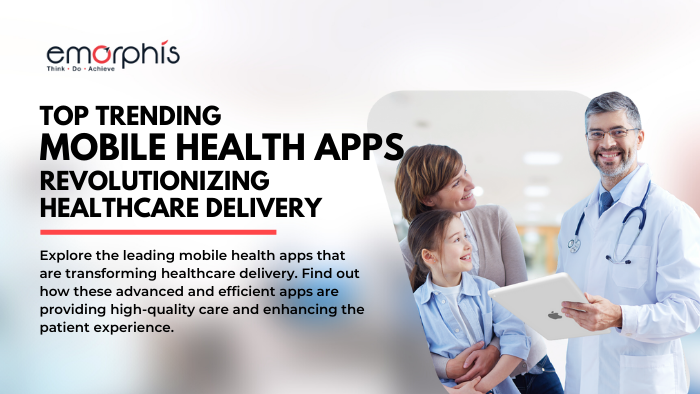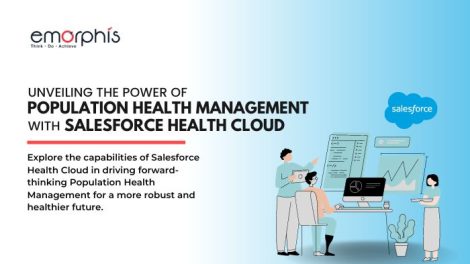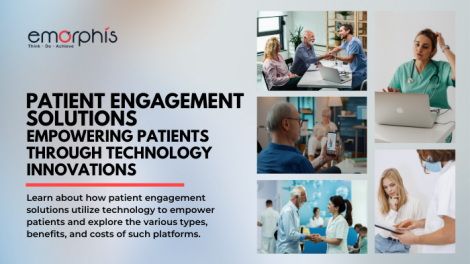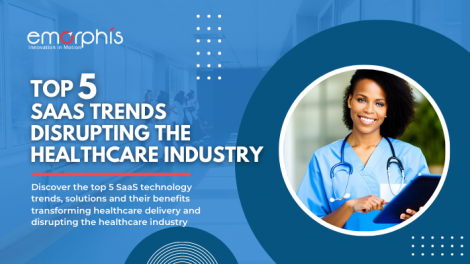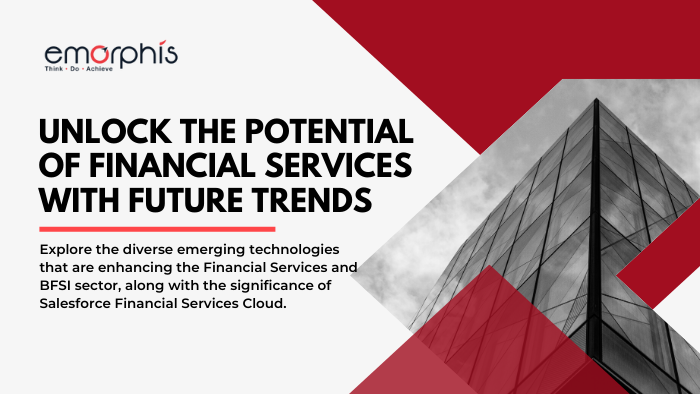Overview
As per the data, the global mhealth market is valued at US$ 54.25 billion in 2021. It is expected to reach US$ 243.57 billion by 2030. It has been identified that mobile health apps have huge potential. With the help of top trending mobile health apps, a patient can book appointments, review prescriptions, and connect with healthcare providers, even order medicine and pay through online mediums. In the United States, more than 60 percent of patients use mobile health apps to manage their health most effectively. Another eye-opening research specified that 54 percent of people prefer virtual appointments for routine medical checkups. The same study also revealed that 26 percent of patients can switch healthcare providers if they do not get access to suitable digital tools.
Now you may have understood that offering a world-class healthcare application has become crucial in the healthcare industry. Hence, healthcare providers must put emphasis on developing highly efficient and technologically advanced healthcare apps that can offer quality care and improve patient experience within no time. In order to design an effective mobile health application, it is important to know what types of mobile health apps are trending in the current scenario.
Top 11 Trending Mobile Health Apps
1. Telemedicine apps
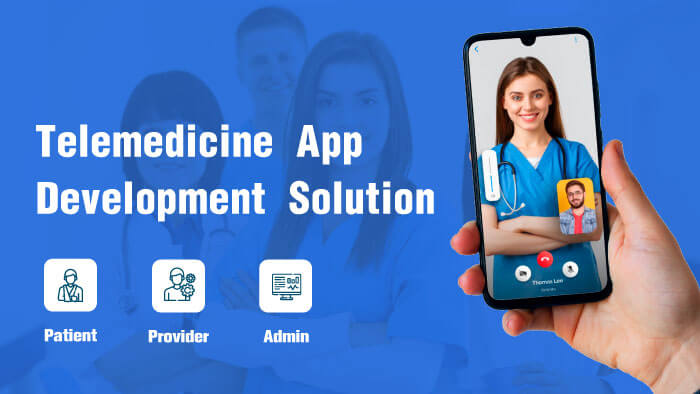
The data highlighted that the global telemedicine market size was valued at US$ 29.58 billion in 2021. It is expected to reach US$ 123 billion by 2030. This specified that telemedicine applications have become highly popular. With the help of these applications’ healthcare providers can offer services to remote patients, and connect online with patients within no time.
Telemedicine or telehealth app development is currently trending due to its convenience, accessibility, cost-effectiveness, and technological advancements. Telemedicine apps enable patients to access healthcare services from the comfort of their homes, reducing the risk of exposure to viruses such as COVID-19. They also provide greater access to healthcare services, especially for people who live in remote or underserved areas.
As a matter of fact, telemedicine apps can help to reduce healthcare costs by enabling patients to receive medical advice and prescriptions remotely, reducing the need for expensive hospital visits or specialist consultations. Advances in technology have made it easier than ever for patients to connect with healthcare providers remotely using features such as secure messaging, video consultations, and electronic prescriptions. As healthcare systems continue to face challenges such as shortages of healthcare providers and rising healthcare costs, telemedicine app development offers a promising solution for improving patient access to healthcare services.
2. IoT-based Applications

The Internet of Things (IoT) has transformed the healthcare industry by introducing innovative solutions to improve patient care, reduce costs, and increase efficiency. IoT-based healthcare applications, including remote patient monitoring software development, have become a popular trend in the current scenario for several reasons. Firstly, these applications enable healthcare providers to monitor their patients remotely, eliminating the need for frequent hospital visits, which is especially important during a pandemic. Patients can receive real-time alerts and notifications on their health status, and doctors can access patient data from anywhere, enabling them to make timely decisions.
Secondly, IoT-based healthcare application development offers personalized care that is tailored to the individual’s unique needs. By collecting data from wearable devices, medical equipment, and other sensors, these applications can analyze and interpret the data to provide customized care plans. This approach not only enhances the quality of care but also reduces healthcare costs, as it eliminates unnecessary treatments and procedures.
Thirdly, the rise of IoT-based healthcare applications has led to increased patient engagement and empowerment. Patients can track their health and progress and take a more active role in managing their conditions. They can also communicate with their healthcare providers in real-time, providing timely updates and seeking advice and guidance.

The emergence of IoT-based healthcare applications, including remote patient monitoring app development services, and wearable app development, has revolutionized the healthcare industry by improving patient care, reducing costs, and increasing efficiency. These applications offer personalized care, enhance patient engagement, and empower patients to take control of their health. As technology continues to advance, we can expect to see even more innovative IoT-based solutions in healthcare in the future.
3. E-prescribing

The global E-prescribing market size was valued at US$ 863.64 million in 2018. It is expected to reach US$ 4017.79 million by 2026. E-prescribing allows healthcare providers to write or send prescriptions directly to the pharmacy. This helps to minimize errors, enhance services and increase patient satisfaction. It has also been identified that E-prescribing is more convenient, efficient, and cheaper for doctors. The growing adoption of these systems shows that the demand for e-prescribing app development will increase in the future.
In the current scenario, e-prescribing applications are trending among mobile health apps due to their numerous benefits. These applications allow healthcare providers to prescribe medications electronically, eliminating the need for paper prescriptions. This not only saves time but also reduces the risk of errors caused by illegible handwriting or incorrect dosage. E-prescribing applications also offer real-time access to patient records, enabling healthcare providers to make informed decisions about medications and avoid potential drug interactions.
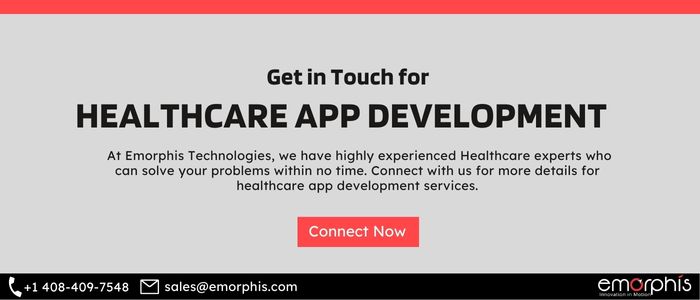
Furthermore, e-prescribing applications also promote patient safety by providing alerts for potential allergies or drug interactions. Patients can receive their prescriptions directly through the application, eliminating the need to visit a pharmacy physically. This convenience is especially crucial in the current pandemic situation, where avoiding unnecessary trips to healthcare facilities is essential.
In addition to these benefits, e-prescribing applications also provide a more efficient workflow for healthcare providers, reducing administrative burdens and improving communication between healthcare providers and pharmacists. These applications are also becoming more accessible, with the increasing adoption of mobile devices and internet connectivity.
Overall, the trend towards e-prescribing applications among mobile health apps is expected to continue, as more healthcare providers and patients realize the benefits of this technology.
4. RCM and Medical Billing

In the current healthcare landscape, Revenue Cycle Management (RCM) and Medical Billing applications are also trending among mobile health apps. These applications help healthcare providers to manage their financial operations, including insurance verification, claims submission, and payment processing.
RCM and Medical Billing applications provide healthcare providers with real-time data analytics and financial reporting, enabling them to track revenue cycles, identify payment trends, and forecast financial performance. These applications can help healthcare providers to reduce claim denials, improve collections, and streamline administrative tasks, ultimately leading to improved cash flow.
Moreover, RCM and Medical Billing applications can reduce the time and costs associated with manual processes, such as paper-based billing and insurance claim submissions. These applications can automate repetitive tasks, reducing the potential for errors and minimizing administrative burdens on healthcare providers and their staff.
In the current scenario, the increasing adoption of telehealth and remote patient monitoring has also contributed to the growth of RCM and Medical Billing applications. With more patients receiving care through virtual platforms, healthcare providers need to be able to manage billing and claims remotely.
Overall, the trend towards RCM and Medical Billing applications development among mobile health apps is expected to continue, as more healthcare providers recognize the benefits of these technologies in managing their financial operations.
This offers a medical billing system that covers electronic health records and practice management systems. Furthermore, it helps to navigate between different mobile health apps. One of the major benefits is that you do not have to sign in separately for each application. Hence, you do not have to worry about data encryption, security compliance, and many more.
Click the link to learn how medical billing services software solutions benefit healthcare organizations.
5. Reminder apps

The reminder app is another popular application. Moreover, medical adherence is one of the most important things for disease management. If you forget to take medicines on time then it may affect the overall treatment cycle. In the current healthcare landscape, reminder applications are also trending among mobile health apps. These applications help patients and healthcare providers to manage their medication schedules, appointments, and other healthcare-related tasks.
Reminder applications offer a range of features, including medication reminders, appointment scheduling, and task management. These applications can help patients adhere to their medication schedules, reducing the risk of medication errors and improving treatment outcomes.
Moreover, reminder applications can help healthcare providers manage their patient schedules and improve communication with their patients. These applications can provide patients with reminders and alerts about upcoming appointments, reducing the likelihood of missed appointments and improving patient satisfaction.
The increasing adoption of telehealth and remote patient monitoring has also contributed to the growth of reminder app development in healthcare. With more patients receiving care through virtual platforms, healthcare providers need to ensure that their patients are adhering to their treatment plans, including medication schedules and appointments.
Overall, the trend towards reminder applications in healthcare is expected to continue, as more patients and healthcare providers recognize the benefits of these technologies in improving patient outcomes and reducing administrative burdens. Reminder applications have the potential to improve medication adherence, increase patient engagement, and ultimately, improve patient health.
6. Fitness Apps

As per the research, the global fitness app market size was valued at US$ 5.1 billion in 2021 and it is expected to reach US$ 15.2 billion in 2028. Fitness apps help users to set specific goals and track the progress of those goals in the most effective manner. Fitness app development has become increasingly popular among mobile health apps in the current scenario. With the increasing emphasis on personal health and wellness, more and more people are turning to fitness apps to help them achieve their fitness goals. These apps provide users with a convenient and accessible way to track their physical activity, monitor their progress, and stay motivated.
The popularity of fitness apps can be attributed to several factors, including advances in mobile technology, increased access to high-speed internet, and a growing awareness of the importance of physical activity for maintaining good health. Furthermore, the COVID-19 pandemic has accelerated the trend, with more people looking for ways to stay healthy and active while social distancing.
Healthcare app development for fitness offers a wide range of features and functionalities, including workout routines, step tracking, calorie counting, and personalized coaching. Many apps also integrate with wearable devices, such as smartwatches, to provide users with real-time feedback on their physical activity.
Overall, the trend toward fitness app development shows no signs of slowing down. As more people become health-conscious and seek convenient and personalized ways to stay active, the demand for fitness apps is likely to continue to grow.
7. Mental health apps

Applications trending also include mental health apps that can help address various mental health concerns. By using mental health apps, a patient can find the right counseling and support. These kinds of applications are also helpful for coping with stress, anxiety, and other health concerns. These apps are easy to use and help to monitor various symptoms. With the rise of smartphones and the internet, people have more access to mental health resources than ever before. These mental health apps provide individuals with a convenient and affordable way to manage their mental health and well-being. These healthcare app development services offering apps provide a wide range of features such as mindfulness exercises, cognitive behavioral therapy techniques, journaling, and tracking mood and symptoms. Many mental health apps also provide resources such as hotlines and crisis support.
The COVID-19 pandemic has also contributed to the increased usage of mental health apps as people face heightened stress and anxiety due to isolation, financial difficulties, and health concerns. In fact, mental health apps have become an essential tool in providing support to those who may not have access to traditional therapy or mental health services. Additionally, mental health apps are effective in reducing symptoms of depression and anxiety, improving mood, and increasing overall well-being.
As technology continues to advance and mental health continues to be a priority, the trend toward mental health apps is likely to continue. With the convenience and accessibility that they offer, mental health apps have the potential to reach a wider audience and provide support to those in need.
8. Medicine Delivery App

As per the data, the global drug delivery market was valued at US$ 1,476.19 billion in 2021 and it is expected to reach US$ 2,047.36 billion by 2030. This shows that medicine delivery apps have become highly popular in the current scenario. With the help of these apps, you can get any urgent medication at your doorstep. These apps make sure that patients get instant access to medicines. Medicine delivery apps are popular during COVID-19. As they provide a convenient way to order and receive medicines without visiting a pharmacy, reducing exposure to the virus.
Pharmacy app development has made it possible to order medicines online and have them delivered right to your doorstep, saving time and effort. Additionally, these apps provide features such as drug interaction alerts, dosage reminders, and prescription management, making it easier for patients to manage their medications. As a result, pharmacy app development is becoming increasingly popular among patients, healthcare providers, and pharmacies, making it a growing trend in the healthcare industry.
Medicine delivery apps have various features. Such as a user-friendly interface, easy order placement, real-time order tracking, and also quick delivery services. These apps also provide customers with access to a wide range of medicines and medical supplies. Making it easier to manage chronic conditions and emergencies.
As the healthcare industry continues to leverage technology to improve healthcare services. The trends toward medicine delivery apps are likely to continue. With the convenience and accessibility that they offer, medicine delivery apps have the potential to transform the way people access healthcare. By reducing the barriers to accessing medicines, medicine delivery apps have the potential to improve medication adherence and health outcomes.
9. Appointment Booking Apps

The appointment booking apps allow patients to book an appointment from anywhere. Hence, these apps save time and make the services quick and efficient.
Appointment booking apps have become increasingly popular among mobile health apps in the current scenario. These apps provide a convenient and efficient way for patients to book appointments with healthcare professionals. They eliminate the need for phone calls and waiting on hold. In addition, appointment booking apps have gained significant traction during the COVID-19 pandemic as patients are trying to avoid unnecessary visits to healthcare facilities.
These apps offer various features such as a user-friendly interface, real-time appointment availability, and reminders for upcoming appointments. Some appointment booking apps also offer telemedicine services, allowing patients to consult with healthcare professionals remotely. This feature is particularly useful during the pandemic when physical distancing is essential. Patients can receive medical advice and prescriptions without leaving their homes.
As the healthcare industry continues to adopt digital technology, the trend toward appointment booking apps is likely to continue. These apps offer greater flexibility and accessibility to healthcare services, making it easier for patients to manage their health. By reducing the barriers to accessing healthcare services, appointment booking apps can help patients receive timely care and improve their overall health.
In conclusion, appointment booking apps are an essential tool for managing healthcare in the current scenario. They offer patients a convenient and efficient way to book appointments with healthcare professionals, reducing the need for physical visits to healthcare facilities. With the convenience and accessibility that they offer, appointment booking apps have the potential to transform the way people access healthcare services. They can help improve healthcare access, and patient outcomes, and reduce the burden on healthcare facilities.
10. Medical Training Apps

The medical training apps offer training to professional doctors. In addition, these apps include interactive modules that cover numerous topics. These apps are highly beneficial for online teaching. These apps provide a platform for healthcare professionals to learn and improve their skills on the go, allowing them to stay up-to-date with the latest medical practices and advancements. Medical training apps have gained significant traction during the COVID-19 pandemic as healthcare professionals are trying to adapt to the changing landscape of healthcare.
Medical training apps offer various features such as interactive courses, quizzes, and simulations, which make learning engaging and effective. These apps also provide access to medical journals and other resources, allowing healthcare professionals to stay informed and current with medical research. Medical training apps can help improve the quality of patient care by enhancing the skills and knowledge of healthcare professionals.
As the healthcare industry continues to evolve, the trend toward medical training apps is likely to continue. With the convenience and accessibility that they offer, medical training apps have the potential to revolutionize the way healthcare professionals learn and practice. By providing healthcare professionals with an opportunity to continuously learn and improve their skills, medical training apps can help improve patient outcomes and the quality of healthcare services.
In conclusion, medical training apps are an essential tool for healthcare professionals in the current scenario. They offer a convenient and flexible way to learn and stay up-to-date with the latest medical practices and advancements. With the potential to improve the quality of patient care, medical training apps are likely to continue to trend in the healthcare industry.
11. Women’s Healthcare Apps

The women’s healthcare apps allow women to control their health and maintain a necessary record. By using these apps women can get insights into different health parameters. These apps offer a convenient and discreet way for women to manage their health and well-being. Women’s healthcare apps have gained significant traction during the COVID-19 pandemic as women are trying to avoid unnecessary visits to healthcare facilities.
Women’s healthcare apps offer various features such as menstrual cycle tracking, pregnancy tracking, and breast health monitoring. These apps also provide access to information and resources on women’s health issues, such as contraception, menopause, and fertility. Some women’s healthcare apps also offer telemedicine services, allowing women to consult with healthcare professionals remotely.
As the healthcare industry continues to adopt digital technology, the trend toward women’s healthcare apps is likely to continue. With the convenience and accessibility that they offer. Women’s healthcare apps have the potential to improve the quality of healthcare services for women. By providing women with a platform to manage their health and well-being. These apps can help women make informed decisions about their health.
We know that healthcare app development is a complex and time-consuming process. To make the overall process smooth and hassle-free we suggest you hire a credible healthcare software development company. If you connect with an experienced healthcare app development company then you do not have to worry about interoperability, integrations, compliance rules, security, and many more. The right healthcare app development partner will make sure that the mobile health apps developed by them follow all the guidelines and work most efficiently.
4 Trending Technologies in Digital Health and Healthcare Mobile Applications
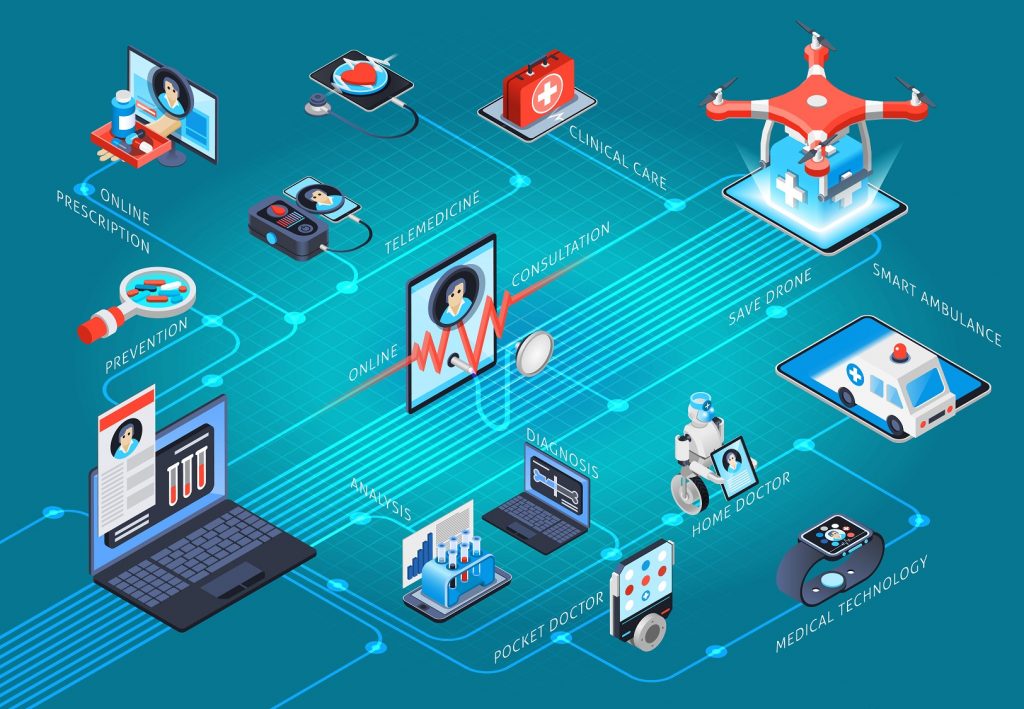
a. Artificial intelligence
As per the research, the global artificial intelligence market size was valued at US$ 387.45 billion in 2022. It is anticipated to grow by US$ 1394.30 billion in 2029. Artificial intelligence is one of the most trending technologies for enhancing the efficiency of a healthcare app. It also helps to record, analyze, and interpret data. If you embed artificial intelligence features in the development of healthcare mobile health apps then it may increase overall efficiency. AI-enabled applications can predict future ailments based on medical information and suggest preventive measures. Some of the top benefits of AI in healthcare are
- Provides smart recommendations
- on-time assistance to critical cases
- Track specific patient data
- Helps with research and development
b. Virtual reality
The research highlighted that the global augmented and virtual reality market is expected to reach US$ 20.9 billion by 2025. The technology helps to connect healthcare providers and patients in a simulated environment. With the help of this technology, you can eliminate the gap between doctor and patient. As per the survey, 62 percent of consumers said that they would prefer virtual health services. The demand for technology increases due to various reasons including the high demand for quality healthcare services, the high cost of healthcare services, the increased role of connected devices in the industry, and many more. The use of virtual reality in healthcare can offer numerous benefits such as
- Medical education and training
- Allow providers to offer therapy and sessions via mobile
- Reduce cost

c. Internet of things
According to research, the global IoT market is expected to reach US$ 650.5 billion by 2026. IoT is another effective technology that can enhance the efficiency of a healthcare application. One of the best examples of this technology is wearable devices. The information collected from wearable devices helps healthcare providers find the best treatment for the patient. These devices not only help doctors but also allow individuals to track heart rate, body temperature, and many more. Healthcare software development services and healthcare IT integration services amalgamation with IoT app development are helping many healthcare providers, patients, and also healthcare professionals. Let’s look at some of its benefits.
The benefits of using IoT technology in healthcare
- Remote patient monitoring: IoT devices can help doctors and healthcare providers monitor patients remotely. In fact, this can be especially beneficial for patients who are recovering from surgery or those with chronic conditions. These devices can collect data such as heart rate, blood pressure, and also glucose levels. As a matter of fact, this can then be analyzed to help healthcare providers for informed decisions about patient care.
- Improved patient outcomes: By using IoT devices to monitor patients, healthcare providers can identify potential health issues. In turn, allowing them to intervene before the condition worsens. This can result in improved patient outcomes and lower healthcare costs.
- Enhanced patient engagement: IoT devices can also help patients become more engaged in their own care. For example, patients can use wearable devices to track their own health metrics. This helps them to monitor their progress toward their health goals.
- Reduced healthcare costs: By using IoT devices to monitor patients remotely. Healthcare providers can reduce the need for hospital readmissions and emergency room visits, resulting in lower healthcare costs.
- More efficient healthcare delivery: IoT devices can also help healthcare providers streamline their operations and improve efficiency. For example, healthcare providers can use IoT devices to monitor the availability of medical supplies. In fact, also various types of medical equipment, allow them to proactively restock when necessary.
d. Blockchain
Blockchain plays a very important role in preserving and exchanging data related to the patient. It also helps to identify serious mistakes and enhance clinical outcomes. Furthermore, blockchain developers can help to have this technology effective to secure patient data as well as manage the supply chain. Blockchain integration in medical apps can also help to make payment safer and more secure. Now we can say that the integration of blockchain technology can make healthcare applications highly effective. Blockchain technology can offer various benefits to the healthcare industry. Blockchain technology in healthcare provides benefits including the following.
- Protect healthcare data
- Helps with supply chain optimization
- Manage and monitor drug supplies
We have explained some of the popular healthcare technologies. If you integrate these technologies with healthcare applications then it can offer a competitive advantage. In order to know more about the usage of different technology or the development of mobile health apps we suggest you hire a credible healthcare app development company. Apart from integrating these technologies, it is also crucial to focus on healthcare interoperability. If you connect with the right healthcare app development company then it can develop a highly effective and interoperable application within the specified time.
Healthcare Integration in Healthcare App Development
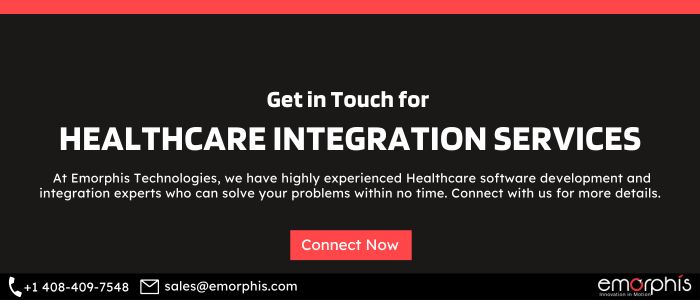
Healthcare professionals use different applications to manage business operations including patient records, lab reports, managing human resources, and many more. As a matter of fact, healthcare integration services allow these professionals to work on a single platform and manage different services most effectively. Without integration, healthcare providers can experience issues due to chaotic and ineffective operations.
The absence of integration between applications can result in data silos and data can either be repetitive or incorrect. For instance, by integrating EHR solutions into healthcare apps you can easily track, record, and gather all the crucial information linked to a patient on a single platform. Also, advanced technologies like IoT, AR, VR, and many more can be integrated into healthcare apps to get high-quality results.
Integrated healthcare solutions help to enhance the patient experience and quality of care. Without seamless integration, the scope and uses of these applications become limited. This is the reason healthcare app development services offering companies consider integration as one of the major priorities. To attain its full potential a healthcare organization requires seamless integration with the existing healthcare information system.
Due to a lack of interoperability, healthcare providers cannot fully understand the patient’s condition. This may result in higher costs and poor quality of care as healthcare providers do not receive all the information at their fingertips. In addition, healthcare interoperability is crucial as it allows healthcare organizations to share information and eliminates errors. It allows healthcare providers to offer a patient-centered and data-driven approach that can enhance overall health outcomes
some of the popular integrations which is trending with various mobile health apps are EHR and HIE, which are Electronic health records systems and Healthcare information exchange systems. Let’s look at them now.
Electronic Health Record
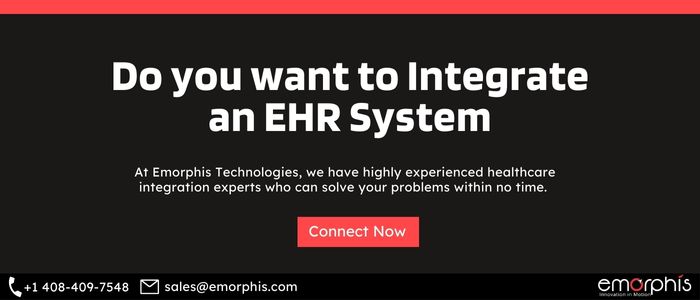
The research specified that the EHR market is expected to reach US$ 47.6 billion by 2030. Furthermore, the EHR helps to collect, update, and track patients’ medical information. With the help of EHR integration and solutions companies can offer remote care and enhance clinical outcomes most effectively. EMR and EHR integration services help save time, eliminate errors, and make services quicker and more efficient. EHR application that contains a patient’s medical history, diagnosis, and many more is a highly efficient tool. It helps healthcare organizations as it streamlines operational records as well as financial information in the most effective manner.
Health Informational Exchange
Health information exchange integration through healthcare integration services and healthcare interoperability can greatly benefit healthcare applications. This integration allows for the seamless sharing of patient health information between healthcare providers, improving the coordination and quality of care. Redox integration is a popular healthcare integration service provider that facilitates the exchange of health data between various healthcare systems and applications.
Through Redox integration, healthcare applications can connect with various healthcare providers and share data securely and efficiently. This integration helps to reduce the administrative burden on healthcare providers, allowing them to focus more on patient care. Additionally, healthcare integration services can help to improve patient outcomes by providing healthcare professionals with a more comprehensive view of patient health information.

Healthcare integration services and healthcare interoperability, such as Redox integration, can greatly benefit healthcare applications. These integrations allow for the seamless sharing of patient health information between healthcare providers, improving the coordination and quality of care. By facilitating the exchange of health data between various healthcare systems and applications, healthcare integration services can help to improve patient outcomes and reduce the administrative burden on healthcare providers.
Conclusion
After analyzing all the above information, it becomes quite clear that mobile health apps have become highly popular. With the help of healthcare mobile apps, providers offer high-quality services and enhance the patient experience. We have highly experienced healthcare software development experts who know how to develop and deliver high-quality applications and integrations. The solutions designed by our experts have already benefitted a huge number of clients.
Look at some of our Case studies in the Healthcare
Our integration and implementation services are diverse and include EHR and EMR integration, among others. Our team of medical app developers specializes in various trending app development discussed above. We are also experts in custom healthcare app development to your specific needs. At Emorphis Technologies, we have extensive experience developing a wide range of mobile healthcare apps. Our primary focus is on creating solutions that benefit both healthcare providers and consumers. If you’re looking to create high-quality mobile health apps or custom healthcare software solutions development and gain a competitive advantage, don’t hesitate to reach out to us.
Contact us now!



